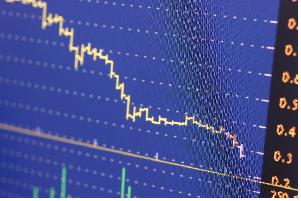Discipline in Key to Making Profits Trading Stocks
When stock trading, discipline can be the difference between a profit and a loss
Your stock trading education must include discipline. You can have the greatest system in the world but if you cannot follow it, what is the point?
I must admit, I have a hard time disciplining myself to follow one trading plan. I enjoy the exploration of different trading systems and ideas. As I gained understanding, it was clear to me that the actual trading part can be considered like the routine task, repeating the same things over and over while the exploration of different trading strategies is more like an adventure.
Once I totally understood my inability to stick to one trading plan, I began to work
toward developing a basic entry technique which I could use in different time frames.
While reviewing my notes, I came across a comment which I wrote on October 21, 2010. It went as follows:
I am aware that I enjoy creativity—building stock screeners—and do not enjoy
consumption, which is the actual trade, likely because trading is work and
requires a lot of time and management once I am in the trade. I am now
aware of this and am taking steps to integrate easier trading into my daily
life.
One way to do this is to commit to some type of schedule or routine which you follow any day in which you will be trading the next day. The idea of a schedule was first brought to my attention by Jake Bernstein in his book The Investor's Quotient. Jake has been trading the market for years and has a lot of wisdom. You can get a free copy of Jake's 8 Best Timing Triggers here.
Your trading day should likely start the night before with some type of prep so you know what you are going to trade the next day. In the morning you would have a routine prior to the opening of the market. This would be followed by a routine you follow while the markets are open and you are trading. Finally, you would have some process to end the day and review your trades.
Bulls and bears are used to describe the up and down of the market. A bull tends to use its horns to lift oncoming threats out of
the way and raises them into the air which is the direction of a bull market. Bears
tend to come down on you from above hence they represent a bearish market or
one that is falling.
The above desk figurines depict the back and forth of the market as it unpredictably tends to move in a preferred direction. They make good gifts for traders, stock brokers or financial advisors.
Discipline to Sell
Ask yourself this simple question, would you sell the stock shown in the picture below which is in an obvious bearish downtrend or hold onto it? If you cannot sell a stock with a stock chart which looks so bearish you may want to rethink your trading ambitions or you may want to rethink how good your discipline is.

According to Van K. Tharp, in "Trade your way to Financial Freedom", psychology and discipline account for approximately 60% of your trading success. Tharp talks about people who can make money using a random entry system provided they use proper money management and self control. This experiment showed that the discipline to follow a system was more important than the system itself provide of course that the system has positive expectancy.
If you set your sell stop and then move it down as the stock starts to go below your sell point, your will-power needs some work.
The first loss is generally considered to be the best loss.
You need personal control in all areas of trading:
- Stock selection for purchase
- When to buy the stock
- Amount of stock to buy
- When to sell the stock
- Record keeping
- Emotions
Can you control your trading? Look at your trading account.
If it is increasing, it is because of you.
If it is decreasing it is because of you.
If it is staying the same it is because of you.
You are the driver, the decision-maker. Your results are due to you.
How do you increase your understanding of trading psychology? That is up to you. Self-control is an inner game. The profit in your trading game is a result of your inner world. Check out some of the inner game books by T. Harv Eker and Robert Kiyosaki reviewed on the self help pages.
Record Keeping Requires Discipline
No matter which time frame you trade, you will need to identify a way to keep track of your trading. You may find that keeping trading records is monotonous and something you are likely not going to do. Record keeping is part of the consumption component of trading. For myself, I find that my record keeping is not bad but could always be better.
I tend to document where I get into and out of a trade, directly on the charts. Over the years, I have traded different strategies. When I look back, sometimes I question why I even got into a particular trade. When it is well documented I understand my thought process at the time. When it is not documented well, sometimes after looking at the entry and exit, I have no idea why I took that trade.
One of the things I did not historically do was to write down my thoughts and feelings I had during the trade. However, after reading Denise Shull’s book, Market Mind Games, I now sometimes record my feelings and emotions regarding the stocks I am selecting. I still need a bit of work in this area.
Gifts for Stock Traders - Stock traders are a different breed. For the stock trader in your life or as a present to yourself consider getting a trading mug. This can be used throughout the day to sip on your favourite beverage and remind you that you are a trader.
Short Course
Introduction on How to Trade Stocks for Beginning Traders
New to trading, not sure where to start. I have put together a short course consisting of 18 lessons. Each lesson should take less than 5 minutes to review. Each lesson provides you with alternate resources to continue learning about that particular topic.
To learn more about this course and sign up please visit the course webpage by clicking the link below.
Monte Carlo Simulator
for Traders
 Having troubles sticking with your trading system?
Having troubles sticking with your trading system?
Do you move from system to system looking for the one system that will bring you riches?
Perhaps you already have it and tossed it aside when it went into a down period.
Using this Excel based program will show you what you can expect out of your trading system once you know the % wins and profit factor.
Stop wasting your time searching for the perfect system (which does not exist) and start trading.
$20.00



